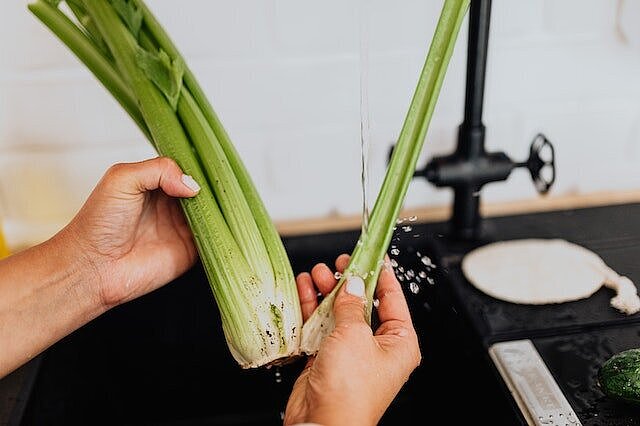Carrots

Carrots are not only healthy for humans, but also for dogs. They contain lots of vitamins, minerals and fiber, which can support your four-legged friend's immune system and digestion. They are also low in calories and can be used as a snack or as an ingredient in dog food. In this article, you can find out more about the advantages and disadvantages of carrots for dogs and how best to prepare them.
What are carrots?
Carrots are root vegetables that belong to the umbellifer family. They have an orange color, which comes from the plant pigment beta-carotene. This is converted in the body into vitamin A, which is important for eyesight, growth and skin health. Carrots have a sweet taste and a crunchy texture.
What are the benefits of carrots for dogs?
Carrots can have many positive effects on your dog's health. Here are some of them:
- They promote chewing muscles and dental hygiene by removing tartar and plaque.
- They stimulate saliva production, which improves digestion and prevents bad breath.
- They provide fiber, which regulates bowel movements and prevents constipation or diarrhea.
- They contain antioxidants that strengthen the immune system and reduce inflammation.
- They are rich in vitamin A, which protects the eyesight and makes the coat shiny.
- They are low in calories and are suitable as a healthy snack or as a filler in dog food to prevent obesity.
What are the disadvantages of carrots for dogs?
Although carrots are healthy, they are not suitable for every dog. There are some risks that you should be aware of:
- Too much vitamin A can lead to hypervitaminosis, which can cause symptoms such as loss of appetite, vomiting, lethargy or bone problems.
- Too much fiber can lead to bloating or diarrhea, especially in sensitive dogs or if there is a sudden change in diet.
- Pieces of carrot that are too large or too hard can lead to a risk of choking, especially in small or hasty dogs.
- Carrots can trigger allergies or intolerances, which can manifest themselves in skin rashes, itching, ear infections or gastrointestinal complaints.
How do I prepare carrots for my dog?
To feed your dog carrots, you should follow a few tips:
- Wash the carrots thoroughly and peel them if necessary.
- Cut the carrots into small pieces or grate them finely to minimize the risk of choking.
- Boil the carrots briefly in water or steam them in the microwave to soften them and preserve the nutrients.
- Mix the carrots into your dog's food or give them as a snack between meals.
- Start with small amounts and observe how your dog reacts. Slowly increase the amount until you have replaced about 10% of the daily food with carrots.
- Pay attention to the total amount of vitamin A in your dog's diet and reduce other sources such as liver or egg yolk.
Carrots are therefore a tasty and healthy addition to dog food. They can bring your dog many benefits if you prepare and dose them correctly. Give it a try and treat your dog to this natural snack!
Properties 20
Are you looking for other ingredients with a specific property?
Just click on them to find more.
If you notice any signs of hypersensitivity or poisoning in your dog, you should see your vet immediately. We are not a substitute for a vet, but we try to be as accurate as possible. Every dog reacts differently and we recommend you get a second opinion or consult your vet if in doubt.
Stay healthy and take good care of your four-legged friend!😊
Similar to Carrots
Celery is a plant from the umbellifer family that occurs in various forms. The best known are white celery, celeriac and cut celery. Celery has long, green stalks with leaves that are often eaten as...
Radishes belong to the cruciferous family, which also includes broccoli, cabbage and mustard . They contain a lot of mustard oil, which is responsible for their typical taste. They also have a high...
The answer is yes, but with some caveats. Parsnips are not toxic to dogs and may even have some health benefits. They are high in fiber, which can aid digestion and increase satiety. Parsnips are also...
Parsley root belongs to the umbellifer family, which also includes carrots, celery and parsnips. It originally comes from the eastern Mediterranean and North Africa and was already cultivated as a...



